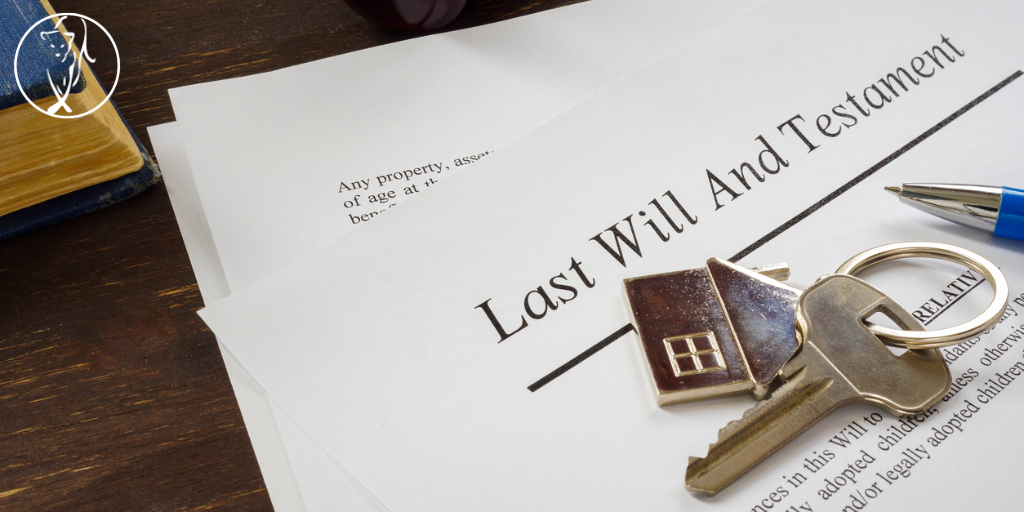4 Legal documents every (properly adulting) adult should have sorted out — Lionesses of Africa

by Sinal Govender and Claire Keet
There are a lot of wonderful things that come with adulthood. The freedom of finally being able to drive. And vote. And become a director in a company. And change your name. By law, you are no longer considered a minor. With adulthood, however, comes a whole lot of responsibility – including making sure that you have your “ducks in a row”.
There are a handful of legal documents that all adults should have sorted out and safely stored away for “just in case”. These are your will, living will, durable power of attorney for healthcare and digital executorship document. Together, these four documents guide really hard decisions during the grizzliest parts of life – terminal sickness and death. (You may well want to crawl under a duvet and avoid doing this altogether. Thinking about sickness and death – especially your own – is not fun. But it’s a necessary evil and you’d be doing a brave thing by getting these documents sorted out).
Your will, living will, durable power of attorney for healthcare and digital executorship document serve two important functions. The first is making sure that your wishes are actually met if you get really sick or when you die. The second is making sure that your loved ones know what your wishes are and can fulfill them for you.
It’s not a nice thing to think about but, by the time these documents come into play, you’re not really part of the decision making process anymore. On that cheerful note, let’s dive in and explore what each of these documents is.
Your will
Your “last will and testament”, usually just called your will, is a legal document that says how, when and to whom your assets get dished out when you die. The assets you accumulate while you’re alive might include things like money, property, physical possessions, intellectual property, businesses. If you have minor kids, then your will is the legal document that says how and by whom they’ll get looked after if you die before they become adults. A simple fact about the modern lives we lead is that you might also be leaving behind some debt that needs to be sorted out too and your will can help direct how this needs to be done.
It’s really important that your will is exactly that – your will! (And not the will of an estranged, money snatching step-uncle, for example). That’s why it’s so important that when you sign your will, you have your faculties and that no one is forcing you to do anything you don’t want to do. You need to be sober and in a clear frame of mind when you are reading, amending, and executing your will. An important part of writing your will is making sure that it’s open to the least amount of “interpretation” possible. What we want to avoid is a situation where someone – especially with a not-so-nice intention – can say “well actually, they meant this…”.
Your living will
A living will is different to your last will and testament. Your will regulates what you want to happen to your estate and affairs once you’re not around anymore. A living will, as the name suggests, is a document that directs what you wish to happen whilst you are still alive but in a compromised state. This document provides guidance to healthcare professionals and your loved ones on what you would like to happen to you in times when you are not able to make these decisions for yourself or express your wishes anymore. A living will can also be called a medical directive although it differs in the sense that you can include wishes that are unrelated to your health, like what you would like to happen to your organs. In your living will you can direct what kind of treatments you would like to receive such as life sustaining interventions (like CPR) or whether you wish for any treatments to keep being administered to keep you free of pain. You can also use a living will to direct to what extent you wish to be kept on artificial life support while you are recovering from a terminal illness or in a vegetative state.
At the moment, a living will does not have any legal force or effect on its own in South Africa. If the time comes when you can no longer make decisions for yourself, your healthcare providers, and your family (however you choose to define this) will come together to make a decision for you. This document provides a roadmap to these people to make the best decision for you, by informing them of what you consider to be the best thing for you. In a worst case scenario, a living will can become an important piece of evidence if the decision making gets taken to court.
Your digital executorship document
Gone are the days of the good old simple life, where you kick the bucket with a house, a car and a few pieces of precious jewelry in your possession. Our lives are so much more complex now, given that almost all of us also have “digital selves” to consider and make preparations for when we die one day. A digital executorship document essentially gives your digital executor the right to handle your digital assets once you’re dead and gone one day. Their responsibility is to carry out your wishes for each of your digital assets, which you’ll list clearly in an attachment to your signed digital executorship document. Digital assets would include things like social media accounts, email accounts, personal photographs, and documents. Depending on the digital asset, you might want different things to happen. For example, some people want their Facebook accounts deleted off the internet when they die; others want them to be memorialized; others don’t mind what happens to them.
At the moment, South Africa’s law regarding death and what happens to your affairs afterwards doesn’t deal with your digital assets appropriately. In all fairness, it’s difficult to imagine a situation where the law will ever keep up with the rapid pace of online developments. This means that a digital executorship is not yet formally recognized in South Africa, but that shouldn’t prevent you from getting your digital affairs in order. While you could definitely include a reference to your digital assets and your digital executor in your will, it isn’t recommended. Remember, your will is a legal document that needs to be submitted to the Master of the High Court for approval. This document can be passed through many hands and eyes and listing all your sensitive information on a public document isn’t really the safest idea. For this reason, even if you appoint a digital executor in your will, it is important to keep usernames and passwords in a separate document, with clear directions on how you would like each digital asset to be dealt with.
Your durable power of attorney for healthcare
A durable power of attorney for healthcare is a legal document that allows medical practitioners to make medical decisions on your behalf if you ever become incapacitated one day and can’t make these decisions for yourself. A durable power of attorney appoints a trusted person (usually a loved one or a healthcare professional that knows you) to make decisions on your behalf when you are mentally incapable of making them on your own. The current guidelines suggest that in order to make a durable power of attorney effective, the person appointed as an agent to act on your behalf should:
-
Be informed by medical advice by a healthcare practitioner treating you.
-
Be informed of your own values, beliefs, and principles.
-
Be competent themselves to make medical decisions on your behalf.
Even though you might instruct your healthcare team to act in a certain way, they are currently well within their rights to pass on your healthcare needs to another healthcare provider if it does not sit well with what they believe to be in your own best interest. You are not the only person whose life is affected by decisions outlined in your durable power of attorney document. Sounds weird right. Look at it like this – there will be a team of medical healthcare providers weighing up their own ethical and professional commitments against your wishes. These healthcare providers have taken their own oaths and are accountable to their own industry bodies, as well as the laws in place at the time. That said, this document provides some helpful information to the healthcare team to balance their own views against. It becomes even more persuasive when you have sought out advice from your own primary healthcare provider before setting out your wishes. This is why we recommend that you appoint that primary healthcare provider as your primary health care agent so that they can also continue this conversation with the medical team in charge.
If you made it this far, we take our hats off to you – we weren’t joking when we said that these legal documents deal with life’s most grizzly moments.




Leave a Reply
Want to join the discussion?Feel free to contribute!